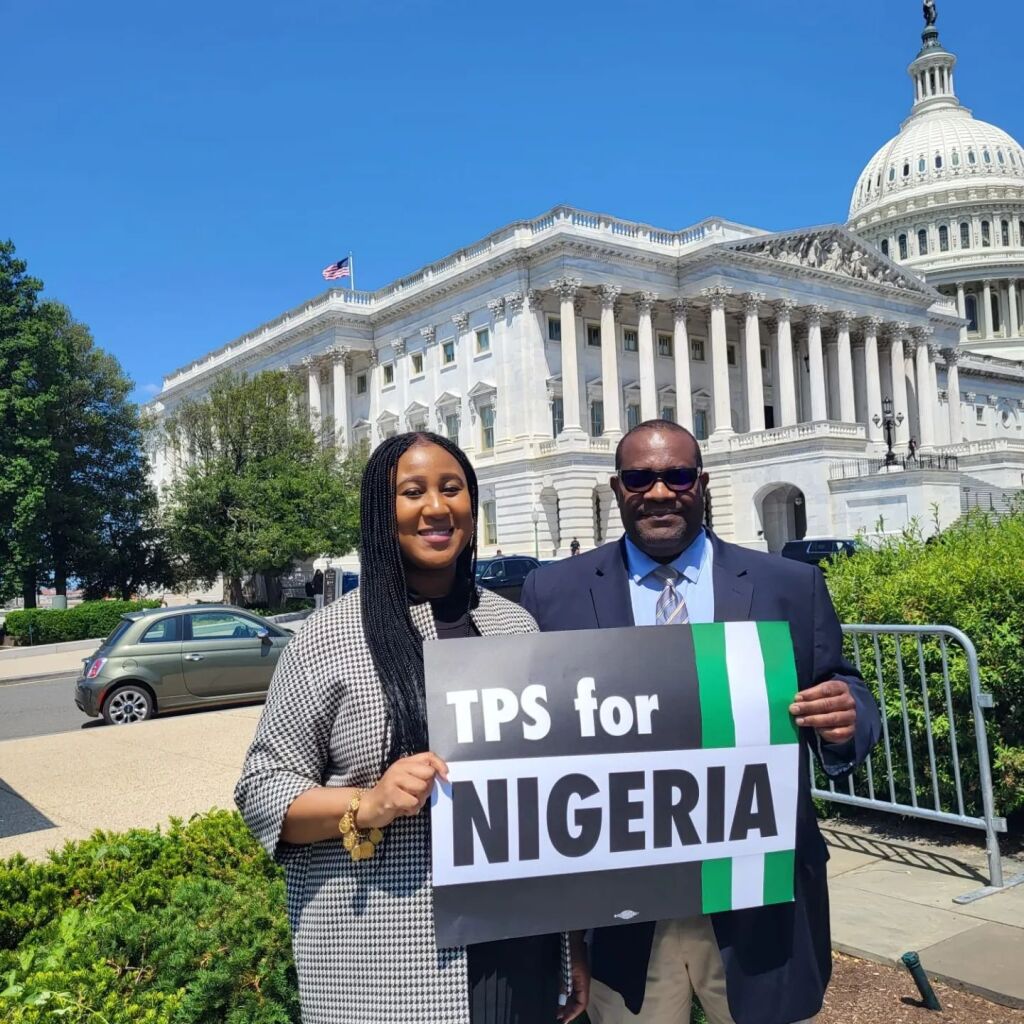Washington, D.C. — A Coalition of organizations advocating for Nigerian immigrants met with federal agency representatives on Monday. The meeting included officials from the Department of Homeland Security (DHS), U.S. State Department, and U.S. Citizenship and Immigration Services (USCIS). The Nigerian Center, Nigerian American Lawyers Association, Amnesty International, and The ONE Campaign led discussions about Nigeria’s inclusion in critical immigration relief programs.
The coalition’s primary focus centered on two key programs: Temporary Protected Status (TPS) and Special Student Relief (SSR). TPS protects nationals of designated countries from deportation and grants them work authorization when their home countries face conditions like armed conflict, environmental disasters, or extraordinary circumstances. The program currently benefits nationals from 15 countries, including Afghanistan, Burma, Cameroon, El Salvador, Ethiopia, Haiti, Honduras, Nepal, Nicaragua, Somalia, South Sudan, Sudan, Syria, Ukraine, Venezuela, and Yemen.
For students specifically, SSR provides essential support by allowing F-1 students from designated countries to work additional hours off-campus and reduce their course load when facing severe economic hardship. The program now assists students from Afghanistan, Burma, Cameroon, Ethiopia, Haiti, Hong Kong, Palestinian Territories, Somalia, South Sudan, Sudan, Syria, Ukraine, Venezuela, and Yemen.
Gbenga Ogunjimi, Director of the Nigerian Center and Lead of the TPS Coalition for Nigeria, presented an urgent appeal: “We urge the administration to grant Nigeria Special Student Relief (SSR) designation, or, if possible, Temporary Protected Status (TPS). We request that the Biden administration extend these critical protections to Nigerian nationals and students in the U.S. before its term concludes. As the United States transitions to a new administration, we recommend prioritizing this request as a policy recommendation for the incoming administration, particularly given its stated commitment to favoring merit-based immigration. This approach is especially relevant for individuals with skills in demand in the U.S. economy.”
The appeal comes amid Nigeria’s deepening economic crisis. The Nigerian currency has experienced a staggering 362.2% devaluation since 2019, with the current exchange rate at $1 USD to 1,664 Naira. This dramatic decline has created unprecedented hardships for Nigerian families and students in the United States.
Nkechi Ilechie, Policy Director of the Nigerian Center and Co-Lead of the TPS Coalition for Nigeria, explained the impact: “This sharp decline has severely impacted families sending remittances to students in the U.S., rendering them unable to afford tuition, housing, and basic necessities. These hardships are why, in April of this year, a coalition of over 50 immigrant rights, human rights, faith-based, and community organizations petitioned the Biden administration to designate Nigeria for Special Student Relief (SSR).”

Supporting this urgent request, Razaq Fatai, Africa Policy and Advocacy Manager at The ONE Campaign, emphasized America’s stake in Nigeria’s stability: “As one of the largest foreign investors in Nigeria, with a vested interest in the country’s stability, the U.S. has a moral obligation to provide protection to Nigerian students and vulnerable populations seeking refuge. Granting SSR and TPS to Nigerians would be a testament to our commitment to human rights and our tradition as a nation of refuge. It would also be in line with the U.S. Strategy Toward Sub-Saharan Africa, which acknowledges the armed conflict in Nigeria.”
The Nigerian Center, Washington D.C.’s first immigrant and cultural hub for the Nigerian diaspora, spearheads efforts for TPS and SSR designations amid Nigeria’s economic and security challenges. The coalition’s advocacy gains momentum as the Biden administration’s term nears its end. This multi-organization advocacy reflects growing support for extending vital protections to Nigerian nationals.









